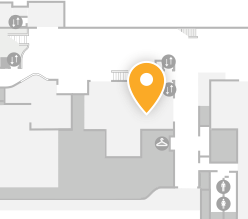
Hwahongmun Gate, Suwon (Translation)
Eight Views of Korea (Series Title)
川瀬巴水 朝鮮八景 水原華虹門 昭和十四年八月 版画 (Primary Title)
Chosen hakkei, Mizuhara Kakomon (Transliterated Title)
Suigen Kakomon Gate (Donor's Title)
Kawase Hasui 川瀬巴水, Japanese, 1883 - 1957 (Artist)
Watanabe Shōzaburō 渡邊庄三郎, Japanese, 1885 - 1962 (Publisher)
The Hwahongmun Gate, built in the late 18th century, is the north gate of the Hwaseong Fortress, a defensive structure located in Suwon, South Korea, just south of Seoul, and whose outer wall extends for three and a half miles. The gate served as a bridge with seven arches across the Suwoncheon River, allowing water to flow through its stone arches into the city of Suwon. The Hwaseong Fortress was built in 1796 after King Jeongjo (r. 1776–1800) relocated the grave of his father, Crown Prince Sado, from Yangju to a royal mausoleum nearby. In a vertical composition, Hasui depicts an evening view of the gate, showing women washing clothes below the bridge while a crescent moon hangs in the evening sky.
Some object records are not complete and do not reflect VMFA's full and current knowledge. VMFA makes routine updates as records are reviewed and enhanced.

